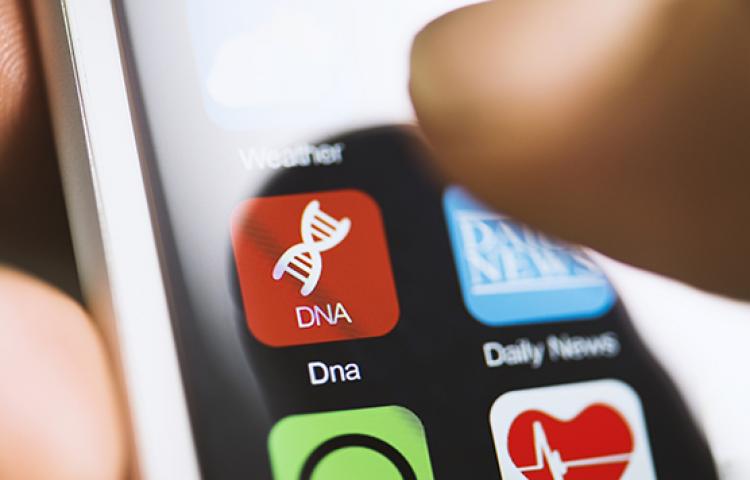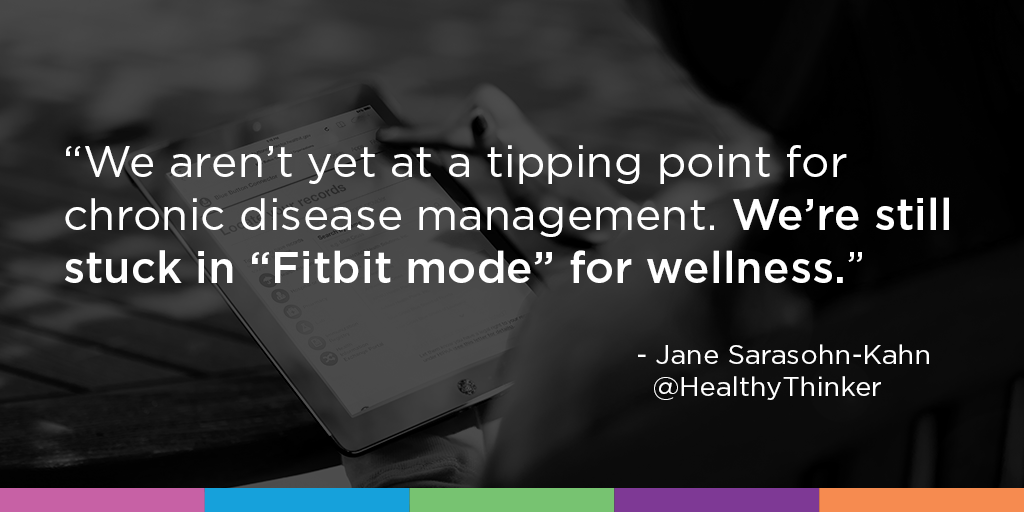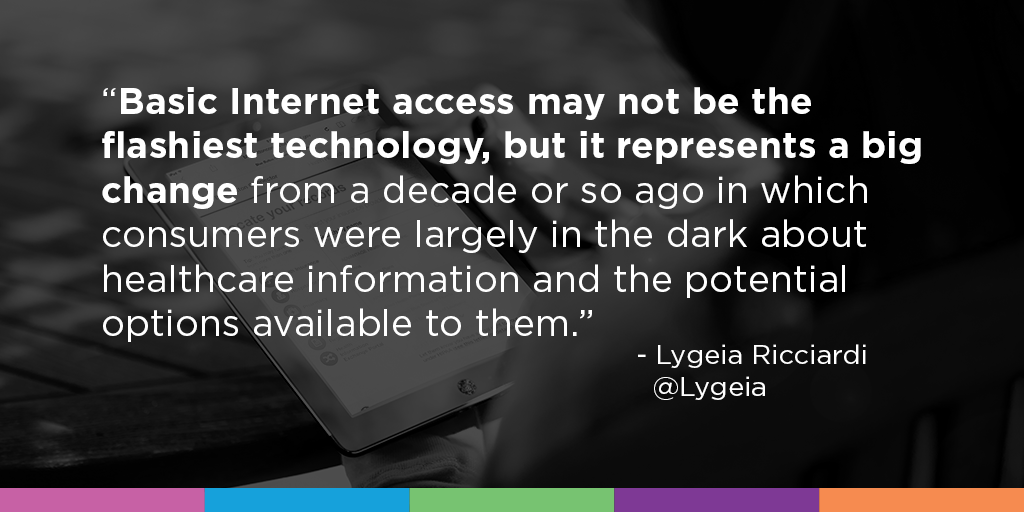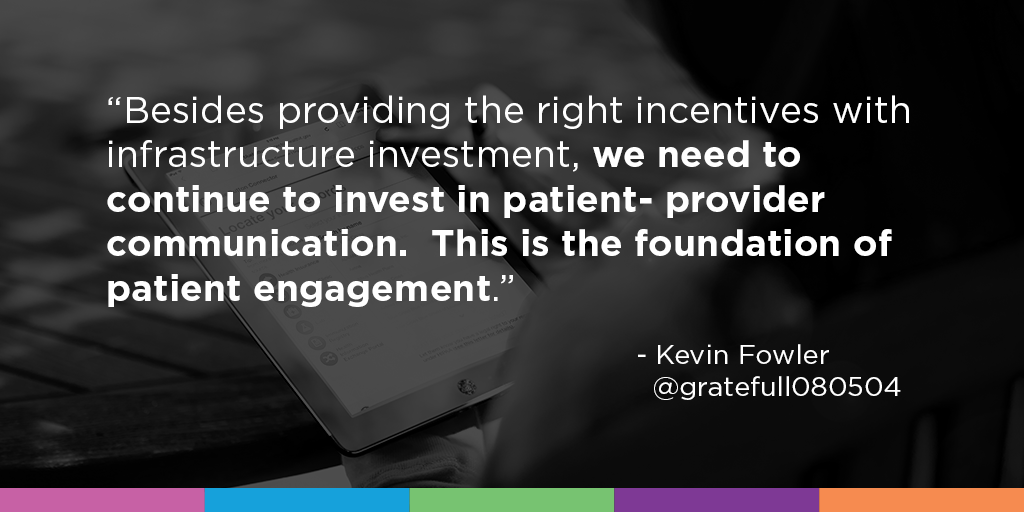
Social Media Experts Weigh in on Trends in Personal Connected Health
By: John Sharp, Sr. Manager, Personal Connected Health Alliance, @JohnSharp
I asked three social media influencers their opinions about current trends in personal connected health and they responded with enthusiasm. All three will be at the Connected Health Conference in December to continue this conversation.
- How are consumers having a broader impact on health through personal health technology?
- Are we near a tipping point for personal connected health making a difference in chronic disease?
- Is innovation in personal connected health speeding up or plateauing?
First up, Jane Sarasohn-Kahn, MA, MHSA, Health economist, communicator & trend weaver and author of the HealthPopuli blog. Find her on Twitter @HealthyThinker.
JS - How are consumers having a broader impact on health through personal health technology?
JSK – People are increasingly viewing managing health and health finances as another aspect of their daily lives. And in their daily lives, mainstream consumers are using digital technologies and mobile platforms. This is translating into peoples’ demands from the healthcare industry, where a patient is feeling more like a consumer in terms of paying first dollar coverage and thus seeking a level of service experience they enjoy in financial services, travel and hospitality, and retail. Some healthcare providers are responding, through online appointment scheduling, better-designed portals, and easy-to-understand bills.

JS - Are we near a tipping point for personal connected health making a difference in chronic disease?
JSK- We aren’t yet at a tipping point for chronic disease management. We’re still stuck in “Fitbit mode” for wellness, and consumers who have already adopted wristband tracking devices are often experiencing Fitbit fatigue. For chronic conditions, physicians will need to “prescribe” or otherwise recommend, remote health monitoring devices curated out of consumer health tech offerings that are proven to make a difference in self-care. We don’t yet have the evidence base with which clinicians are comfortable. As value-based payment pervades doctors’ practices, we’ll see greater uptake as the evidence base grows. Note that companies like Apple and Fitbit have engaged in discussions with the FDA regarding how to medicalize consumer health devices, so this journey has begun.
JS - Is innovation in personal connected health speeding up or plateauing?
JSK- We’re just at the beginning yet on how personal connected health can impact our overall health and wellbeing. I just returned from the CES Unveiled meeting where I saw start-ups in digital health, which impact eyesight, sleep, fertility for men, medication adherence, and real health problems. As we marry consumer-centered design and data analytics that respond to real peoples’ problems, we’ll know we’ve seen real innovation. The Internet of Things world, with connected refrigerators, lighting, and other smarthome features will also bolster personal connected health in an ecosystem way that will be meaningful to everyday people.
Next up is Lygeia Ricciardi, President, Clear Voice Consulting, LLC. Find her on Twitter @Lygeia.
JS - How are consumers having a broader impact on health through personal health technology?
LR - The vast majority of consumer-facing digital health apps and wearables today are fitness and wellness focused, so activities like step and calorie counting are among the most popular. Over time these tools will evolve—instead of just recording information, they will help people make healthier decisions in real time, for example by making proactive menu recommendations. When you consider the impact of digital technology on health generally, though, basic Internet access affects the greatest proportion of the population. More than 80% of adults who use the Internet use it for health, and an increasing proportion access it via mobile phone, which encourages to more personal and just-in-time searches. People are researching symptoms, drugs, healthcare providers, and connecting with other people like them to talk about health. Basic Internet access may not be the flashiest technology, but it represents a big change from a decade or so ago in which consumers were largely in the dark about healthcare information and the potential options available to them.

JS - Are we near a tipping point for personal connected health making a difference in chronic disease?
LR - Though there are pockets of success, I think we still have a long way to go before most people with chronic disease benefit from integrating digital health tools into the management of their health. A lot of work remains to be done in customizing digital tools to meet the needs of people with particular conditions, as well as addressing the needs of underserved populations and those with low literacy levels. Changes in payment mechanisms that emphasize health outcomes as opposed to volume of services provided will help to accelerate investments in chronic disease, in part because it represents an area for substantial cost savings.
JS - Is innovation in personal connected health speeding up or plateauing?
LR - While VC funding for digital health may show signs of slowing, innovation continues and is, in fact, likely to speed up as more and more information is available digitally, ranging from electronic health records to data from sensors embedded in a variety of wearables to genomic sequencing and environmental data. The pace of technological innovation and adoption accelerates over time, and I expect that pattern to continue in the context of personal connected health, too. It took over 30 years from the invention of radio for more than 50% of the population to adopt it, but just 10 years for 50% adoption of the Internet—the adoption of social media and particular applications such as Pokémon Go has been increasingly rapid. There are numerous innovations just on the horizon in personal connected health, including greater integration of Big Data analytics and Virtual Reality into health and healthcare. In short, we ain't seen nothin’ yet!
And finally, Kevin Fowler, kidney transplant recipient and patient advocate. Kevin is also President, The Voice of the Patient, Inc. and member of the Kidney Health Initiative, Patient Family Partnership Council. Find him on Twitter @gratefull080504.
JS- How are consumers having a broader impact on health through personal health technology?
KF - I think patients like myself see the possibilities of healthcare delivery being improved through personal health technology. As a transplant recipient myself, I see the possibilities of telemedicine improving not only the patient experience but accelerating self- care skills. This will also benefit the nephrology community because the specialist skills and acumen can be shifted to greater value generating efforts.
I am using my constructive patient voice to advocate for new models of care, better outcomes, etc. Bottom line the patient experience and outcomes can be improved through personal health technology.

JS - Are we near a tipping point for personal connected health making a difference in chronic disease?
KF- Although I wish we were near a tipping point, I do not believe we are. Everyone is talking about patient engagement and providing solutions, but the health care community overall does not really understand their patient population needs. Besides providing the right incentives with infrastructure investment, we need to continue to invest in patient- provider communication. This is the foundation of patient engagement.
I see a lot of tactics but to create chronic disease patient engagement strategies, I recommend prioritizing these efforts to move from tactics to strategies:
- Policy alignment
- Investment in patient insights
- Investment in infrastructure
- Patient-Provider communication
Once these priorities are in place, then sustainable patient engagement strategies can be achieved.
JS - Is innovation in personal connected health speeding up or plateauing?
KF - I think innovation is just starting to accelerate. If you really want to hyper-accelerate innovation, always include patients in proof of concept discussions through each successive step until the solution reaches the market.
These thought leaders are just a taste of the kind of discussion you will experience at the Connected Health Conference, December 11-14, 2016. Join us and join the discussion and help define personal connected health.




